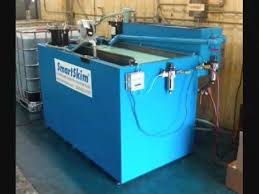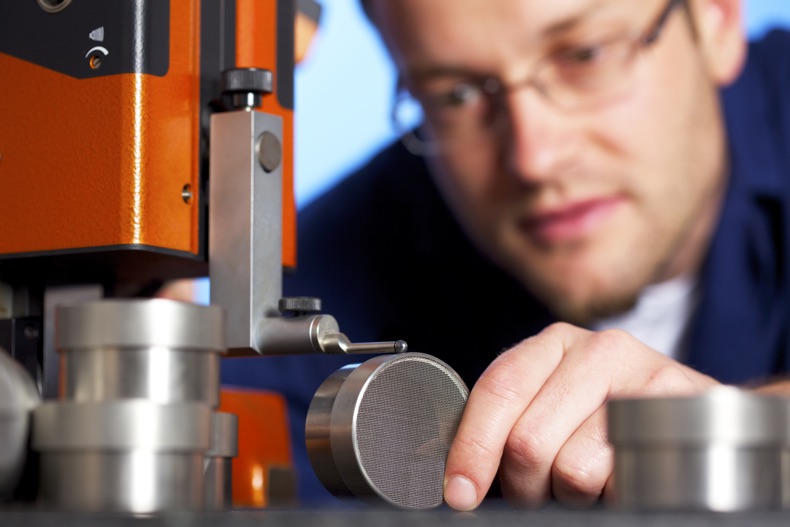June 19, 2020
Toolmakers......They just don't grow them anymore
In the ever changing landscape of CNC and production machining some things have definitely been made easier with the advent of technology. With the equipment and tooling advances life certainly is easier than it was 50 years ago, even 10 years ago in some respects. However, within this technology there is a hidden trap. We are losing our ability to do hands on work. Skilled trades in the form of tool makers, mill wrights, and other industrial trades people are disappearing. Many machine shops are feeling this pinch even if they don’t know it. With convenience from technology there is always a hidden cost. Especially when it comes to building of fixtures and permanent set‐ups. The days of going to a tool maker and providing them a concept and getting out of the way are coming to an end in a lot of ways. If a company even has toolmakers in today’s environment they work from predetermined CAD drawings designed by someone other than the toolmaker. This is not to say that is wrong. In today’s world of enhanced quality systems and GD&T measurement requirements it is critical that this process is followed. However, because we are designing off line, and we have new CNC equipment that seems easy to operate we are losing the skill and finesse that went into building fixtures and tooling. Additionally, young people are not coming into the tool making trades like they used to. Today’s generation Y doesn’t want to apprentice. They have been told since kindergarten that they were smarter, better, and deserve more. They feel entitled and certainly are not going to apprentice under someone who they of course know more than. Obviously I am being sarcastic here but it definitely is a contributing factor. Technology in some ways has hurt the creative process. Toolmakers are and were some of the smartest most innovative people in our industry. They come up with new and improved ways to do things every day. With that in mind since toolmakers are becoming more and scarcer and with the design element we are losing their input.
The first problem of not having enough toolmakers is one we need to deal with. We need to grow them ourselves. We need to push our employees into an apprentice program we develop and drive. We cannot expect the high schools to feed our pipeline. Today’s high schools believe every child needs to go to college. All high school graduates attending institutes of higher education is a noble aspiration but a misguided one. College is not for every person. People learn in many different ways. Academia needs to understand that. Sometimes a more hands on visual approach is the necessary one. Tool making fulfills the need to learn the academic part and see the actual application. Again we need to develop and drive the programs. Although some states still offer vocational apprentice programs most of these are not a priority, underfunded and most of the responsibility falls on employers to drive the program anyways. While we still have master toolmakers that are skilled and generally want to pass on their knowledge we need to make sure we get apprentices working with them in a structured program to develop the next generation of toolmakers. It’s an investment in our future. It’s obvious to most that even with technology the human interaction, creativity, and innovation are necessary ingredients for success. We need to take these generation Y employees and nurture them differently than we did in the past. We need to incentivize them by augmenting the standard practical methods with technology since most young people will also relate to technology more readily than the most of the people doing the training. It’s not an easy transition but a necessary one. We need to make sure when we find good candidates we retain them. This will again be very different than in the past. Generation Y employees are driven by many things and money is not the top of the list. It still is a motivator but the not the top motivator. Generation Y employees like their time off. Overtime isn’t appealing. Employers need to be flexible with these employees. Additionally they need to feel wanted, welcomed, and have a sense of importance. As with all of our employees we try to instill those items in them on a daily basis but we can and need to do a better job of that. Additionally, generation Y employees need to see movement, progression, and feel like they are progressing. The historical training models don’t always work. They need to be changed up and modified to fit the individual. One size does not fit all.
The second concern we cited with today’s modern tool making being collaboration plays right into the generation Y concerns. Since technology, outside design, and quality systems tends to segregate and push people out of the innovative process we need to make an extra effort to pull in non‐traditional players and insist on involvement. This forced collaboration will blossom. It will keep the tool makers from just building what’s on the print. They will be invested and have a stake in the process. They will also understand why certain tolerances are important and why others are not.
At Fermer we are proud to say we have a full tool room and machine shop. We have four master toolmakers and two apprentices and looking to add additional. We can handle big jobs, small jobs, and all in between. The biggest advantage we have is that by having a full tool room in house we control our destiny. We can build and repair anything and we look forward to continuing to serve our customers with exceptional quality and value. Our people make us great.






